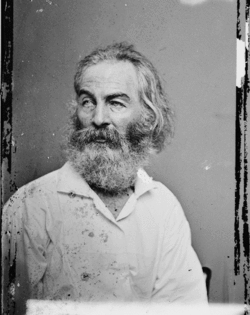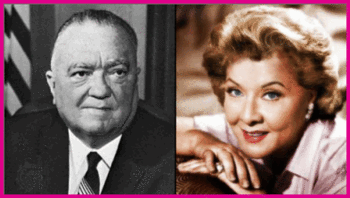 Editors Note
Editors Note
Forebears
by Dan Vera & Bo Young
Bo: So who cares if Tchaikovsky was Gay? I suppose if you’re 16 and in Nebraska…you care. I know when I was 16 and in Lombard Illinois, I cared.
Dan: Well it’s important because most people don’t know. Also we take our cues from history. Our understanding of the present is based on our understanding of what has come before. The lavender past been erased and even though the situation has gotten better, that erasure is still very much in play. That unknowing is still the experience of the grand majority of Gay people who grow up in places where the history’s been scrubbed.
Bo: And popular movies like Alexander can soft pedal his male lover and over-emphasize his wife and kids. The argument of time seems to be on the side of our opponents and would-be oppressors. I can imagine someone looking at this situation, and thinking "How depressing…what good is this to me?"
Dan: But I can also see someone looking at this and saying, “Wow. He was like me?” or “Wow. Maybe I’m not off the mark when my gaydar goes off about so and so.” Because in many cases we have been unable to record the right history because the records of our forebears still remain closed. I think of about E.M. Forster who dies in 1879 and doesn’t have his Gay novel Maurice published until 1970. I mean it’s crazy. But it makes me wonder “who else?” Who else is out there waiting to astound with his truth?
Bo: And I think it’s an important lesson in learning to “read between the lines” and recognize the bias of historians.
Dan: Certainly. Especially because in many of these figures, like the men on the cover of this very issue, their lives were murky, their longings hidden, or the record of their loving destroyed by themselves, or their families or estates.
Bo: In the end it’s like the mother of that boy who wrote to us and wondered if White Crane was appropriate for a 16 year old…we all have homework! If we had been able to learn that there were interesting, important, contributing Gay people out there at that age. Men who loved men, who were shaping culture, and our cultures… it might have eased the journey.
Dan: I also think that knowing the changing fortunes in historical understanding of Gay people makes me more prepared to fight against future changes. Harry Hay was always warning against the false positivism of some historical thinking, the belief that culture is always going up and up. Well, history doesn’t really work that way.
Bo: Indeed. The gravitational pull is usually towards regression, it would seem or at least the status quo…or assimilation.
Dan: This sort of overview is important because it discounts the lie that “I’m the only one” that a lot of people still feel. We still live in a culture that’s rather reticent to speak of these things.
Bo: I thought it was great fun yesterday as we walked down Library way, leading up to the New York Public Library and reading all those brass plaques and noting how many of them were “family,” as you put it, and leading up the grand stairs to see Kerouac’s On The Road scroll. Yet another conflicted member of the "family."
Dan: Yes, that was lovely for all the related material they pulled out from their collections — of the forebears of the Beats and of course all the photographs and letters between the beat community. So many of them Gay. Ginsberg, Burroughs. So many of them hounded, jailed or harassed by the authorities for being open. But still in their Gay skins.
Bo: So what’s your favorite thing in this issue?
Dan: I found Steven Solberg’s piece is quite lovely and in keeping with what has been a recurring thread we’ve been focusing on in our projects. That of recording, observing, and transmitting our culture, that is the thread of our existence.
Bo: I think Steven’s film is going to be an important contribution. Robert Croonquist points out that there’s some documentary film DNA running through the Word Is Out documentary about the earliest days of coming out, to The Cockettes about the San Francisco Castro, post-Stonewall era. And now Bones is a maturing of this community…having elders and recognizing them are different things.
Dan: What did you love in the issue?
Bo: I am also very moved by the writing about Edward II. Here was a man who loved men and he was the king of England…and even he was oppressed. It’s supposed to be “good to be king.” But not if you’re a king who loves another man.
Dan: On the other hand, if he hadn’t been king, that history probably wouldn’t have been preserved. Given the odds against it surviving, it is a miracle it can be in our pages today.
Bo: So the other important lesson here is this idea of “reading between the lines” of history…getting past the prejudices and biases of history and historians. It’s really quite interesting to discover, as we have with the “Gay Wisdom” mailings, that there really is enough material to send something out on a daily basis!
Dan: Yes. We have hundreds of people on that list receiving daily Gay history notes and occasional excerpts from White Crane’s 20 years of publication [www.gaywisdom.org]. But as much as I love knowing the figures that were Gay in the past, I most love their stories and what they left behind. You’ve been reading through Noel Coward’s correspondence of late and I know it’s given you a great thrill to read his written badinage with other Gay writers of the time.
Bo: One of those books you never want to end. The Letters of Noel Coward edited by Barry Day. It’s a chocolate box of reading material. Just like this issue…we hope.
Dan: Yes.
Bo: How much things have changed…and how much they have remained the same. Maybe that ought to be the cover quote. Plus ca change!
Dan: Oui.
This is just an excerpt from this issue of White Crane. We are a reader-supported journal and need you to subscribe to keep this conversation going. So to read more from this wonderful issue SUBSCRIBE to White Crane. Thanks!
Bo Young and Dan Vera are editorials mid-wives and co-conspirators in creating each issue of White Crane. Bo lives in Brooklyn, NY a few blocks from a museum and Dan lives in Washington, DC a few blocks from a Shrine. Bo is the author of First Touch: A Passion for Men and Day Trilogy and Other Poems. Dan is the author of two chapbooks of poetry. Visit him at www.danvera.com
If they sometimes seem interchangeable in the minds of White Crane readers it’s because they talk on the phone each day and bask under the shade of the same growing tree, the watering of which they consider their contribution to the continued flowering of gaiety.
You can write them at editors@gaywisdom.org
Photograph of Walt Whitman, Library of Congress archives.
 Excerpts from the Spring issue of White Crane are now up online.
Excerpts from the Spring issue of White Crane are now up online. 


